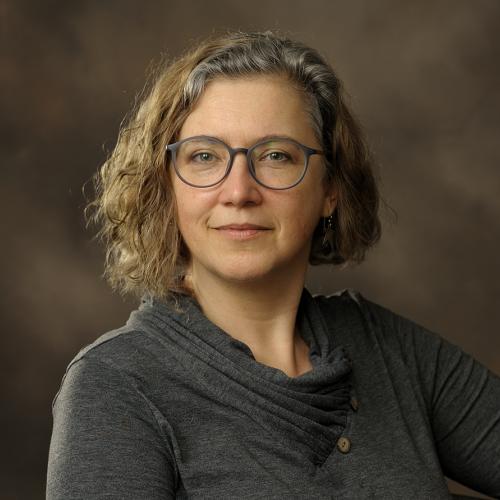Librarians need to be able to communicate about social justice issues, and teaching social justice storytelling to library school students will help them develop the skills to do so, two researchers say.
Associate Professor Kate McDowell and Nicole Cooke, a former Illinois information sciences professor who now teaches at the University of South Carolina, analyzed how to teach those skills through a storytelling assignment with their students.
"We both felt our field needs to teach students to be diversity advocates," McDowell said. "We want our students to recognize injustices on the ground when they are happening so they can advocate for student well-being."
McDowell and Cooke taught the same assignment in four different courses at Illinois. They asked their students to explore a social injustice and create a video discussing the issue, using a variety of narrative strategies to demonstrate its importance and suggest possible solutions. They analyzed the students' work and the effectiveness of their approaches for "calling out injustice" and "calling in the audience" in a journal article for The Library Quarterly.
"The key thing storytelling does more than other forms of communication is that it's not just serving the audience, you are interacting with the audience," McDowell said.
A particularly effective example of "calling in the audience" to encourage action, she said, was a student who told audience members to use their power over food choices and "vote with our forks roughly three times a day" to choose food producers who promote a more just food system.
McDowell and Cooke wrote about another student's story focusing on the extremely high rates of suicide for transgender people and the importance of belonging and acceptance. "This story addressed churches and church leaders, challenging them to take an inclusive stand: 'Rejection literally kills trans people. But affirmation and acceptance literally save our lives. … So which side will your church choose?'"” they wrote.
Public librarians have a responsibility to provide critical services to underserved populations, McDowell said. Communicating about social justice issues is "walking the talk of diversity and inclusion. Public libraries have the most benefit for people who have the least," she said.
Librarians can tell the stories of systemic barriers that potential patrons face, such as lack of public transportation and a lack of minority representation in library collections, McDowell and Cooke wrote.
"When communities have, for example, been overlooked or marginalized and services to them have been un- or underfunded, social justice storytelling can be a first step in reversing those trends. … These stories help make the case for broadening services despite pervasive social inequities that make injustices invisible," they wrote.
In addition to librarians advocating on behalf of their patrons, storytelling skills also are useful for public and community college librarians whose libraries are funded by taxes and sustained budget cuts during the pandemic, McDowell said.
"They have to be advocates for their own salaries. One way to do that is to use data storytelling to say how those institutions are helping real people find jobs every day. It really helps to have a story about the greater justice these institutions are providing for the people who benefit. There's not a person who doesn’t want themselves, their friends and relatives to have decent jobs. That is a kind of social justice that is very basic," McDowell said.
